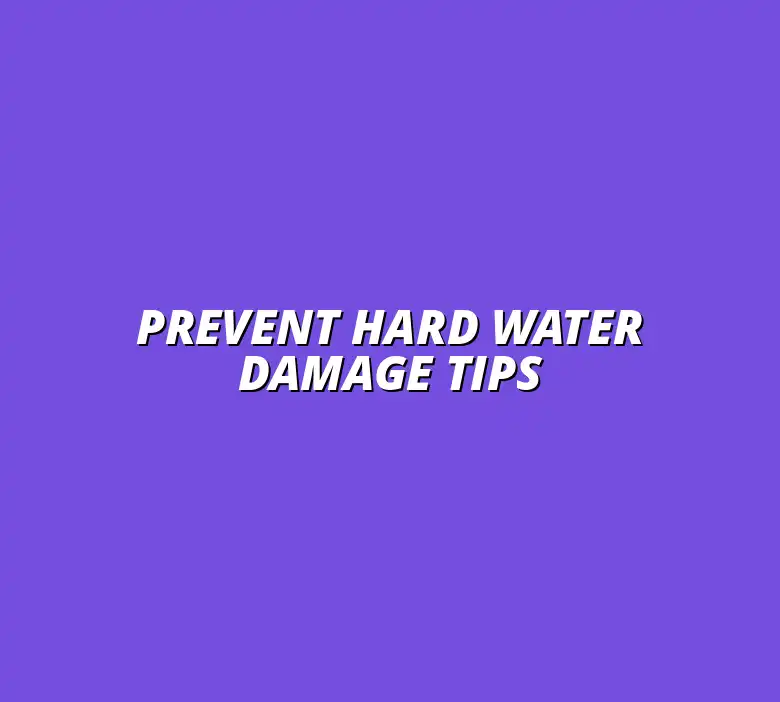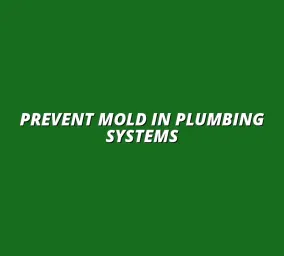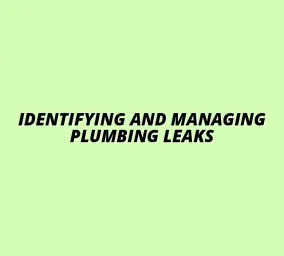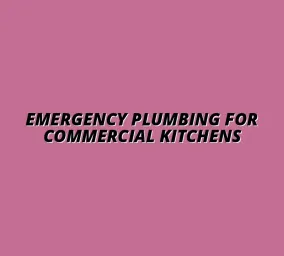Prevent Hard Water Damage Tips
Understanding Hard Water and Its Impacts
Hard water is a term used to describe water that contains high levels of dissolved minerals, primarily calcium and magnesium. When water passes through soil and rock, it picks up these minerals, making it harder. Understanding the implications of hard water is crucial, as it can affect our daily lives in various ways.
Not only does hard water impact plumbing and appliances, but it can also influence our skin and hair health. Many people notice that their soap doesn’t lather well in hard water, leading to a less satisfying washing experience. It’s essential to recognize the signs and figure out solutions to mitigate its effects. For example, understanding how to prevent pipe corrosion is a key aspect of managing hard water damage.
Defining Hard Water and Its Composition
To grasp the concept of hard water, we first need to understand what contributes to its hardness. Hardness is determined by the concentration of calcium and magnesium in the water. The higher the concentration, the harder the water. This can vary greatly depending on geographical location and the local water supply.
In addition to calcium and magnesium, other elements can also contribute to water hardness. Some of these include iron and manganese, which, while beneficial in small amounts, can cause issues when they accumulate. Understanding the makeup of your water is a significant step in addressing any problems caused by hard water.
What Makes Water Hard?
Water hardness is primarily caused by various natural processes, mainly geological formations. As water flows over or through these formations, it dissolves minerals that lead to increased hardness. Some key factors include:
- Natural rock formations rich in calcium and magnesium.
- Groundwater sources that have been filtered through mineral-rich soil.
- Evaporation of water in areas with high mineral content, concentrating hardness.
These factors can vary from place to place, meaning that some households will experience hard water while others may not. Knowing the source of your water can help you understand its hardness better!
Common Minerals Found in Hard Water
Hard water typically contains several minerals, with calcium and magnesium being the most prominent. These minerals can cause various issues in our homes and even affect our health. Here are some common minerals found in hard water:
- Calcium: Often comes from limestone and can contribute to scale buildup.
- Magnesium: Similar to calcium, it can also lead to soap scum and residue.
- Iron: Can cause staining and contributes to rust in pipes.
- Manganese: While less common, it can affect water taste and lead to dark stains.
Being aware of these minerals can help you take the necessary steps to manage their effects on your home and health!
The Effects of Hard Water on Pipes and Appliances
Hard water can have significant impacts on plumbing systems and household appliances. When hard water flows through pipes, it can leave behind mineral deposits, leading to buildup over time. This buildup can reduce water flow and efficiency, causing various issues that might require professional intervention. Regular drain cleaning can help mitigate some of these problems.
Household appliances that use water, such as dishwashers and washing machines, can also suffer from hard water damage. The mineral deposits can lead to decreased performance and even shorten the lifespan of these appliances. Understanding these effects can help you be proactive in maintaining your home.
How Hard Water Causes Scale Buildup
Scale buildup is one of the most common problems associated with hard water. As water heats up in appliances or flows through pipes, the dissolved minerals can precipitate out and form solid deposits. This scale can lead to several issues, including:
- Reduced water flow through pipes.
- Increased energy costs due to inefficient heating in appliances.
- Potential clogs that may cause plumbing issues.
Identifying scale buildup early can save homeowners from more severe problems in the long run!
Identifying Damage in Plumbing Systems
Detecting hard water damage in plumbing can be challenging, but there are several indicators to watch for. Homeowners should look for:
- Decreased water pressure in faucets.
- Visible mineral deposits around faucets and showerheads.
- Signs of rust or corrosion on pipes.
Paying attention to these signs can help you address any issues before they escalate into more costly repairs!
The Financial Costs of Hard Water Damage
The financial implications of hard water damage can add up quickly. From decreased efficiency in appliances to plumbing repairs, the costs can be substantial. Some common expenses include:
- Repairing or replacing appliances affected by mineral buildup.
- Plumbing repairs due to leaks from damaged pipes.
- Higher energy bills from inefficient appliances.
By understanding these potential costs, homeowners can make informed decisions about managing hard water in their homes!
Effective Strategies to Prevent Hard Water Damage
Preventing hard water damage is essential for maintaining the functionality of your home. There are several effective strategies that can help you keep your plumbing systems and appliances in good shape. By implementing these approaches, you can save money and avoid the headaches associated with hard water issues!
Let’s dive into some practical solutions, especially focusing on water softening and regular maintenance practices. Addressing potential water heater issues is crucial; consider an annual water heater inspection to prevent problems. Together, these methods can significantly reduce the impacts of hard water.
Implementing Water Softening Solutions
Water softeners are devices that can help reduce the hardness of water by removing minerals like calcium and magnesium. These systems work by exchanging hard minerals with sodium or potassium ions, resulting in softer water that is less likely to cause scale buildup. The benefits of using a water softener include improved appliance efficiency, cleaner dishes, and softer skin and hair!
When considering a water softener for your home, it’s crucial to choose the one that best fits your needs. Here are some factors to consider:
- Size: Choose a unit that can handle your household's water usage.
- Type: Decide between a salt-based softener, salt-free system, or dual-tank model.
- Maintenance: Check how easy it is to maintain and refill the system.
- Cost: Consider both the initial cost and long-term operational expenses.
Understanding Water Softeners and Their Benefits
Water softeners provide several advantages for households facing hard water challenges. They can help extend the life of your plumbing systems and appliances, while also improving the quality of your water. Soft water is generally easier on your skin and hair and leads to cleaner and spot-free dishes!
Additionally, using softer water can result in:
- Less soap usage due to better lathering.
- Reduced energy costs from more efficient appliances.
- Less frequent cleaning of fixtures and surfaces.
Choosing the Right Water Softener for Your Home
To effectively combat hard water, it's important to research and select a water softener that suits your specific needs. Take into account your water hardness level, household size, and budget when making your choice. If you're facing a plumbing emergency, consider contacting a plumber in your area for assistance. It may also be beneficial to consult with a water treatment specialist to ensure you're making a well-informed decision!
Some popular brands and models to consider include:
- Kinetico
- Fleck
- Aquasana
- GE Appliances
Regular Maintenance Practices for Pipes and Appliances
Regular maintenance is key to ensuring your pipes and appliances function efficiently and last longer. Simple practices can prevent hard water damage and save you from costly repairs. Setting up a routine cleaning schedule will keep your systems running smoothly!
Here are some essential maintenance practices to consider:
- Check for leaks in pipes and appliances regularly.
- Flush water heaters to remove sediment buildup.
- Clean faucet aerators and showerheads to prevent clogs.
- Inspect and replace filters in appliances as needed.
Establishing a Routine Cleaning Schedule
Creating a cleaning schedule can help you stay on top of maintenance tasks and monitor potential hard water issues. Understanding your drainage system is important; learn more about choosing the right drainage system for your home. I recommend checking your plumbing and appliances at least once a month for any signs of trouble. It’s always better to catch problems early!
Some tasks to include in your routine may be:
- Monthly visual inspections of pipes and fixtures.
- Quarterly deep cleaning of appliances.
- Annual water quality testing to assess hardness levels.
Best Practices for Maintaining Water-Using Appliances
Proper care for your water-using appliances can minimize the effects of hard water. This includes dishwashers, washing machines, and water heaters. By following best practices, you can prolong their lifespan and efficiency!
Consider the following tips:
- Run dishwashers and washing machines on the hottest settings to help dissolve minerals.
- Use vinegar or commercial descaling agents periodically to remove buildup.
- Schedule professional servicing for your appliances annually.
Addressing Common Questions about Hard Water Prevention
As homeowners become more aware of hard water issues, many have common questions regarding prevention. It's important to understand these concerns to take proactive measures. Here, I’ll address some frequently asked questions to help you navigate hard water challenges effectively!
For instance, many wonder if hard water can be treated without using softeners. While there are some alternative methods, they may not be as effective. Winter plumbing issues are also a concern; learn how to prevent freezing pipes during cold weather. Still, understanding your options is beneficial!
Frequently Asked Questions about Hard Water Solutions
Addressing questions about hard water solutions can demystify the prevention process. Here are some common queries:
- Can Hard Water Be Treated Without Softeners? Yes, there are options like reverse osmosis systems and magnetic filters, but they might not completely eliminate hardness.
- What Are the Long-Term Effects of Hard Water on Home Systems? Over time, hard water can lead to scale buildup, reduced appliance lifespan, and costly plumbing repairs.
Can Hard Water Be Treated Without Softeners?
While water softeners are the most common solution for tackling hard water problems, alternatives do exist. However, they may not effectively neutralize the hardness as traditional softeners do. It’s a good idea to weigh your options and consider water quality before making a decision!
What Are the Long-Term Effects of Hard Water on Home Systems?
Hard water can cause several long-term issues that may affect your home systems. These include:
- Clogged pipes due to scale buildup.
- Decreased efficiency of appliances, leading to increased energy costs.
- Frequent repairs or replacements of plumbing components.
Consulting with Professionals for Hard Water Issues
If hard water problems persist despite your best efforts, it may be time to consult with professionals. Experts can provide insight into your specific situation and recommend suitable solutions. Knowing when to seek help is crucial for protecting your home! For emergency water heater leaks, emergency plumbing services are available.
Professional assistance can be particularly beneficial for complex systems or severe hard water issues. They can help conduct tests and determine the most effective treatment options!
When to Seek Expert Advice on Water Quality
It’s essential to know when you should call in the experts. Signs that indicate you may need professional help include:
- Frequent plumbing issues that seem to be connected to hard water.
- Severe scaling on fixtures and appliances.
- Unexpected increases in your water bill.
Understanding the Role of Plumbers and Water Quality Specialists
Plumbers and water quality specialists can assess your unique situation and provide tailored solutions. They comprehend the challenges posed by hard water and can help design an effective prevention plan. Collaboration with these professionals can lead to substantial improvements in your home’s water quality!
Summarizing Key Points for Hard Water Prevention
In summary, preventing hard water damage is essential for the longevity of your plumbing systems and appliances. By implementing water softening solutions and following regular maintenance practices, you can effectively manage hard water issues. Remember, a proactive approach is always more beneficial than waiting for costly repairs!
Recap of Effective Prevention Techniques
To safeguard your home against hard water damage, keep in mind these key techniques:
- Install a suitable water softener.
- Establish a routine maintenance schedule.
- Seek professional advice when needed.
Final Thoughts on Protecting Your Home from Hard Water Damage
Overall, taking action now will save you time, money, and stress in the future. Protecting your home from hard water damage is a worthwhile investment. By being informed and proactive, you can maintain a healthy and efficient water system!
Encouraging Proactive Steps for Homeowners
As a homeowner, you can control the impact of hard water with the right knowledge and strategies. Don’t wait for issues to arise—implement these preventive measures and enjoy the benefits of cleaner, softer water in your home! Together, we can keep our homes safe and sound!






